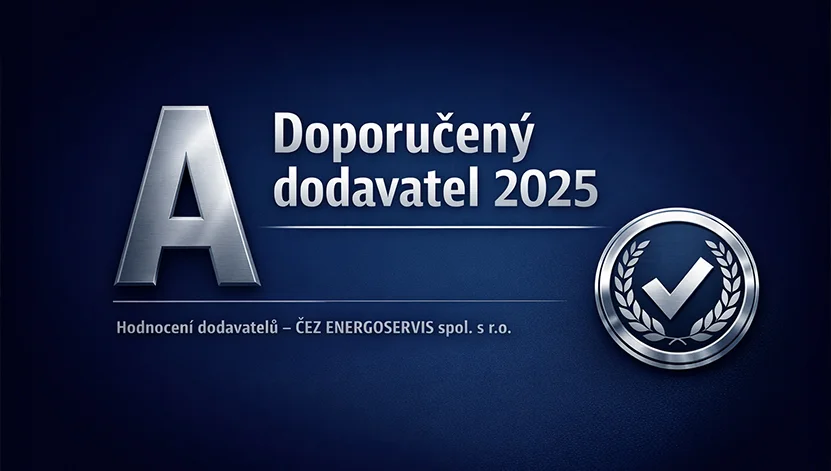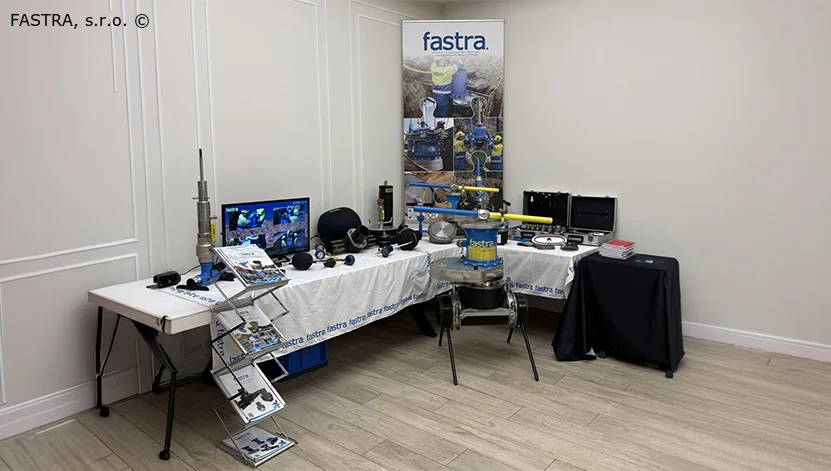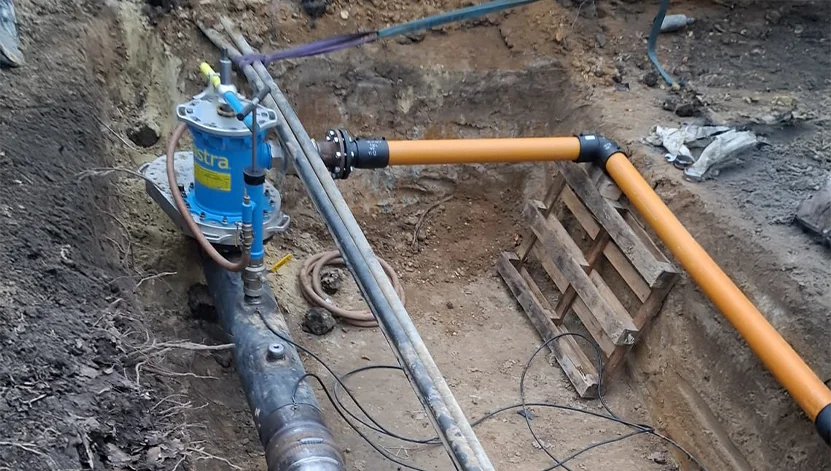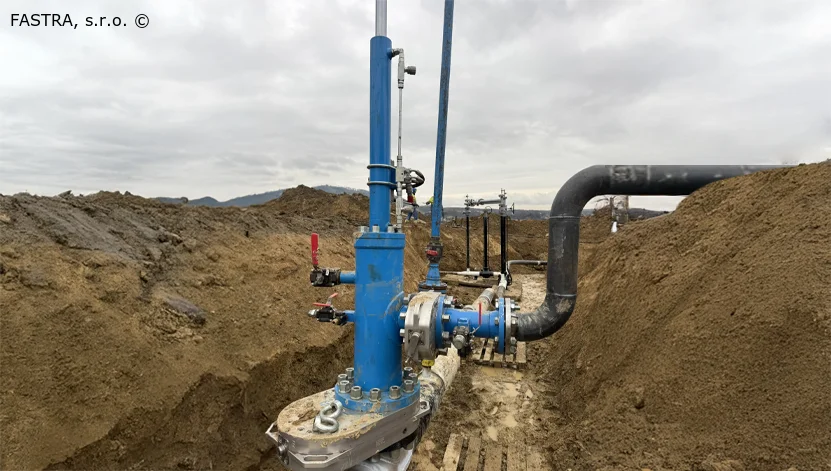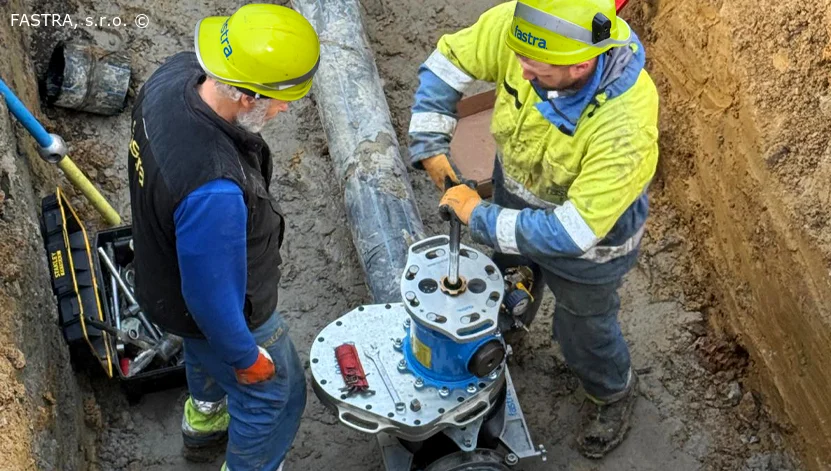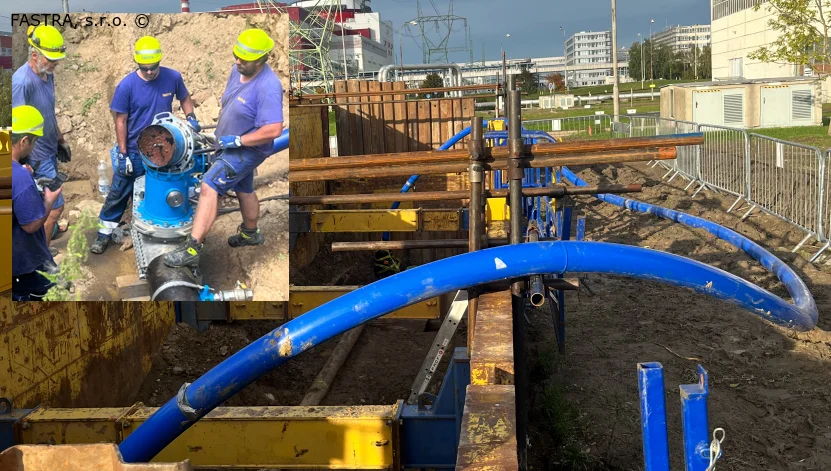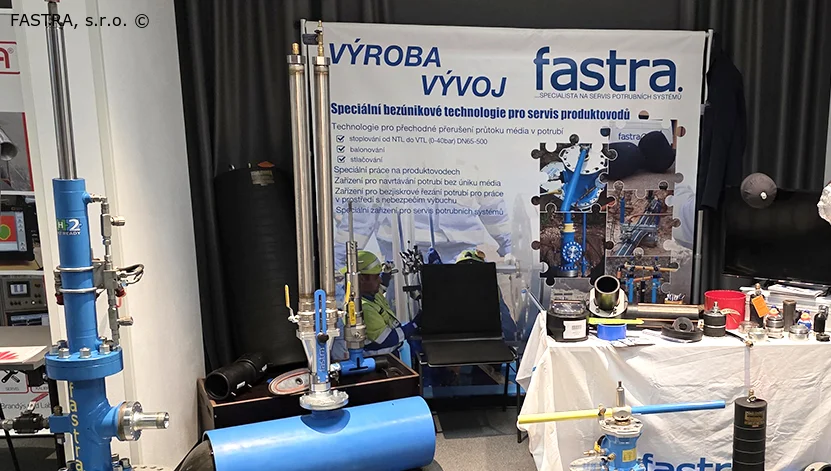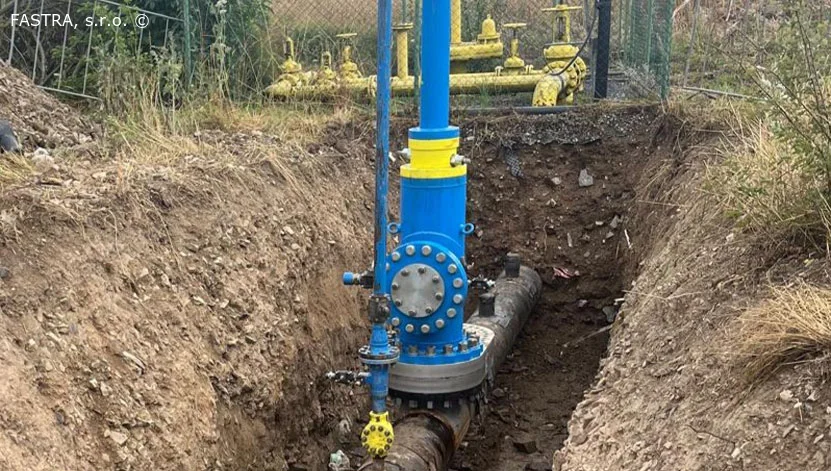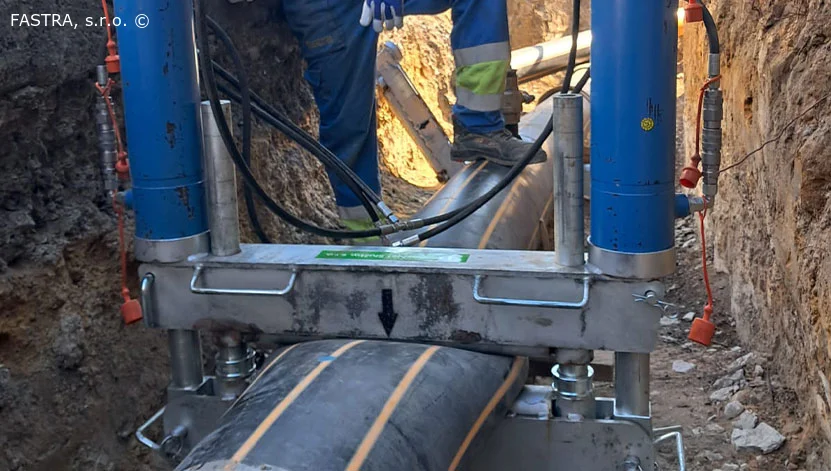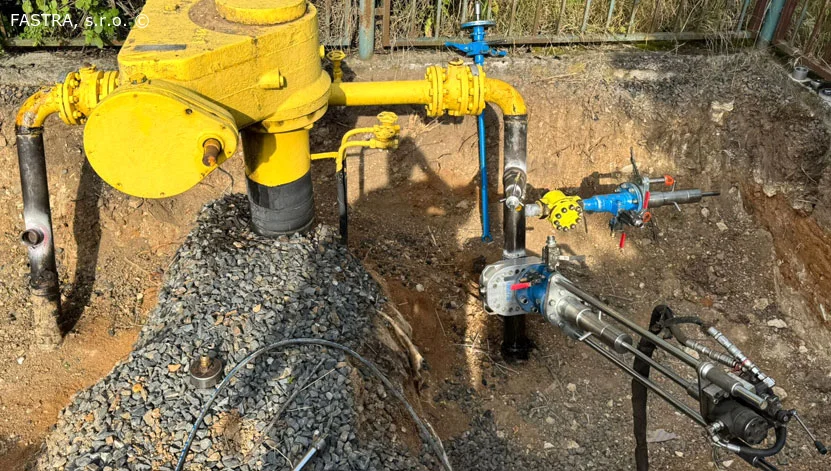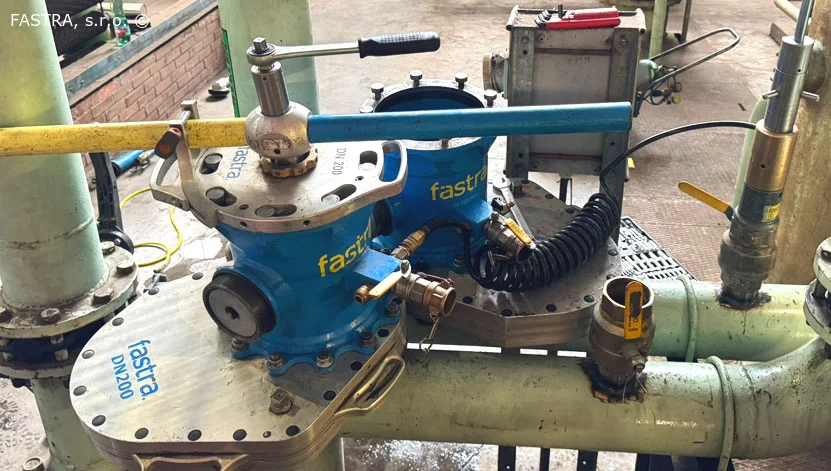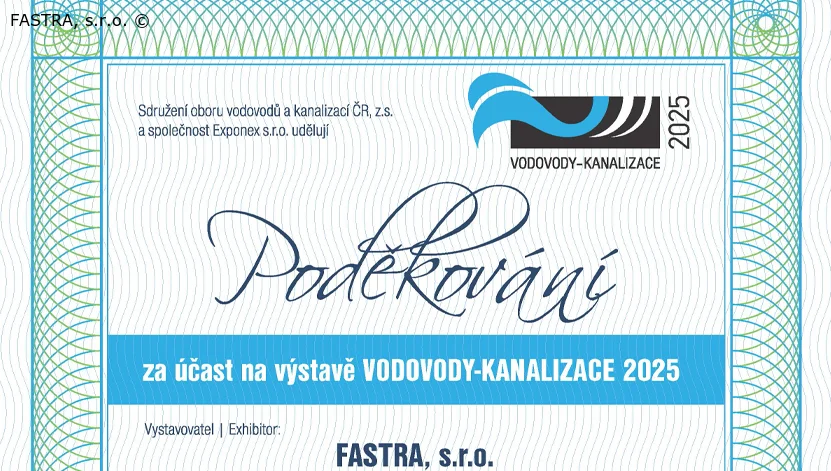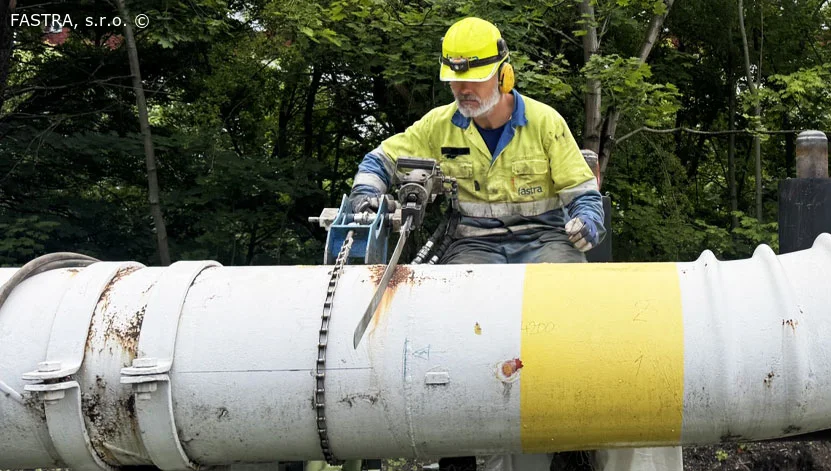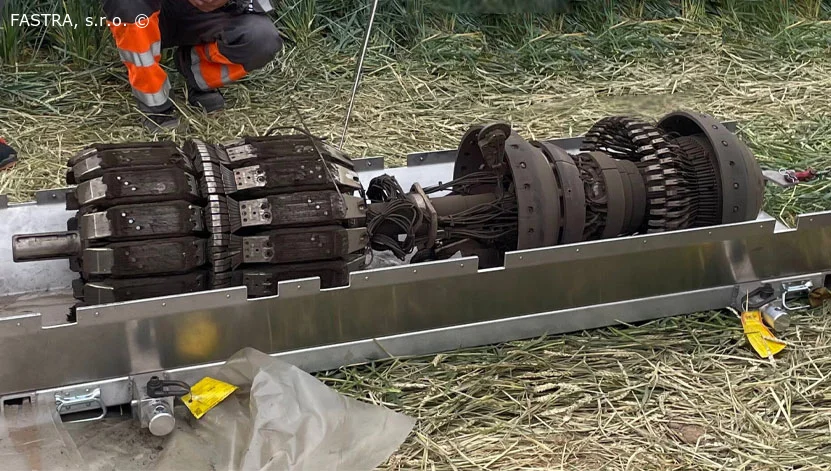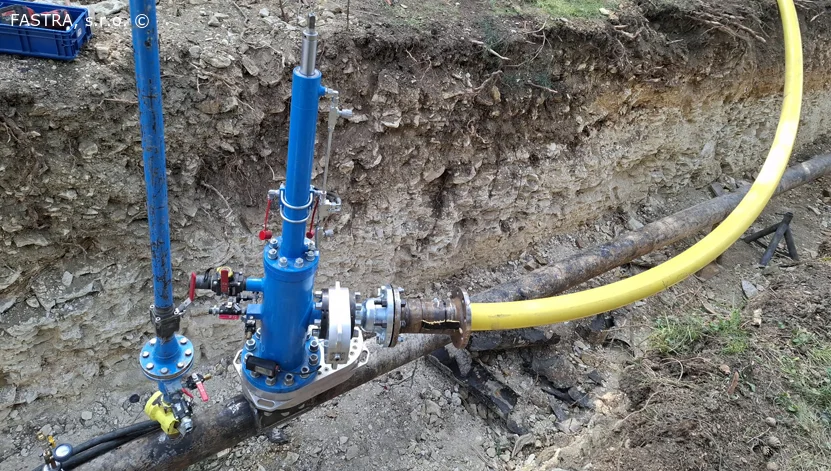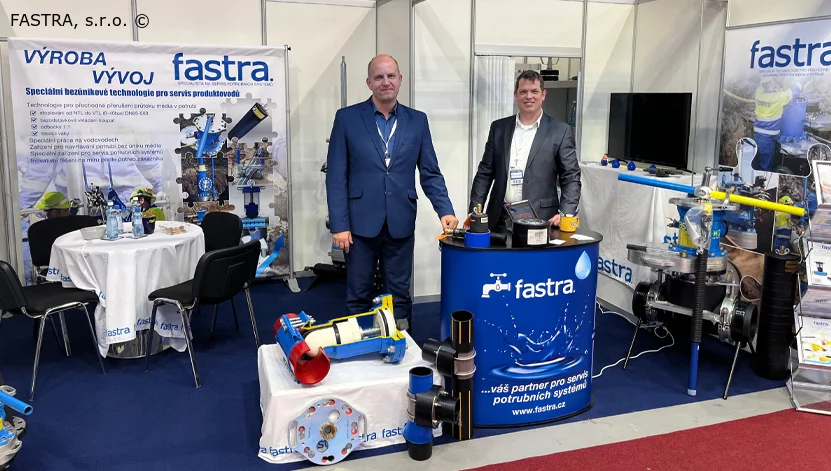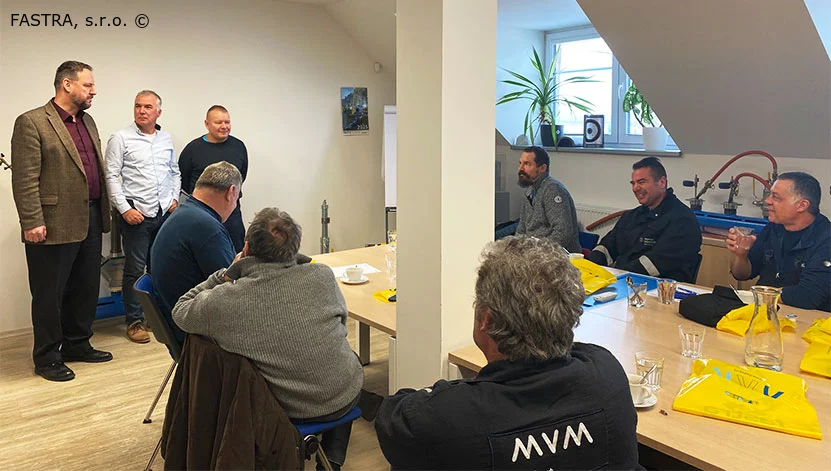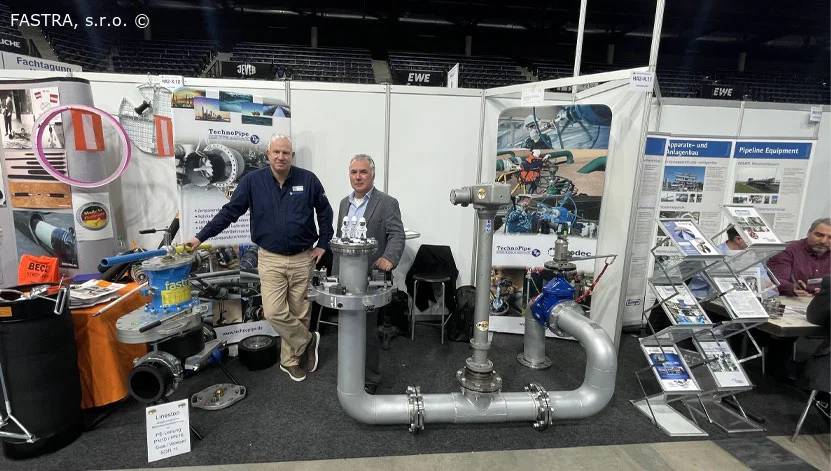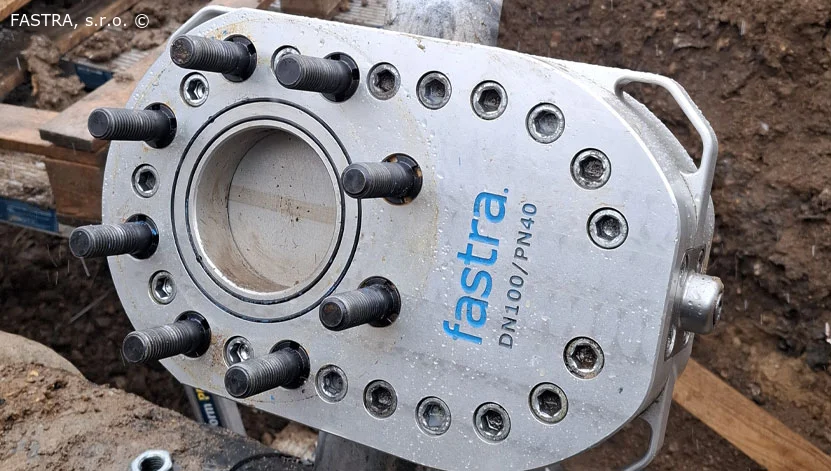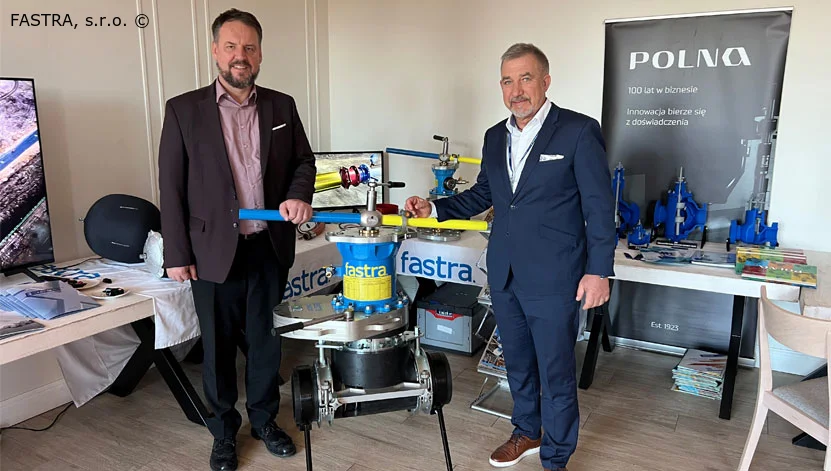Line stopping on a DN300 cast-iron water pipeline in Jihlava, Street Ječná
On 16 - 17 July 2024 we carried out a unique job to close off both sides of a DN300 cast-iron water pipeline. This was a unique project, as it was the first time a line-stopping operation was performed on a cast-iron pipeline using technology involving the insertion of a solid body. FASTRA, s.r.o. and SLUŽBY MĚSTA JIHLAVY (SMJ) s.r.o. collaborated on this unique project. The aim of the work on this pipeline, the wall of which was up to 20 mm thick in places, was to install a new hydrant for the fire station, without the need to shut down the water supply and limit the supply of drinking water to the town’s inhabitants. As the line-stopping kits were located several metres apart, there was no need to discharge a large quantity of drinking water; a DN150 bypass was also made to maintain the water flow, keeping the water supply in full flow even through the closed-off section.
SMJ also chose this project as a means of testing the functionality of the technology before line stopping on the DN500 main water supply feeder pipeline, which Jihlava town council needs to carry out in the following year. As this feeder pipeline cannot be completely shut down without the entire regional town’s water being cut off, the decision was taken to use a special technology to close off the pipe – line stopping. This technology is leak-free, safe, and is capable of sealing water pipelines as well as pipes carrying other media. The principle involves inserting a solid body into the pipeline through a "transition" chamber, after which the line-stopping element is opened up in the pipeline, stopping the flow of water.
The work is unique in that mechanical fittings are used, as when working on cast-iron pipes it is not possible to use welding elements commonly used with steel, polyethylene or stainless-steel pipes.
FASTRA is continuing its tradition of innovation and technical development and its own design department together with a partner from abroad has developed new types of mechanical fittings. This innovation now enables work to be carried out on pipes and other non-weldable materials.
The work itself was preceded by one necessary step, which has not yet been mentioned. The very first step was to perform pipeline diagnostics using non-destructive methods designed by the Rock Solid Group, a company based abroad. These diagnostics showed that the material was calibrated with grey cast iron.
The diagnostics included measurement of the thickness of the pipe walls along the entire working length, and also the detection of any corrosion and other faults that could complicate or even prevent the performance of line-stopping and other work. The diagnostics turned out as expected, confirming that the material was grey cast iron and enabling the work itself to start.
After the diagnostics had been completed, the locations of all the pipe fittings were determined. These were line-stopping fittings, auxiliary fittings for filling and draining the pipeline, as well as a DN300/150 bypass fitting on each side of the closed pipe.
Two days were planned to complete the project. The first day saw the gradual drilling of all the fittings and the preparation of the device to close off the pipeline. The aforementioned bypass was also made and installed.
The plan for the second day was to actually close off the pipeline with a line-stopping kit. It is normal for the pipeline to be closed off during the second day, giving time to carry out the main work on the drained pipeline, in this case the installation of a new hydrant. After completion of the main works, the shut-down section was refilled and cleaned. This was followed by removal of the line-stopping device, closing and securing the fittings with plugs and caps.
The bypass, which is in operation throughout the work, is always closed and dismantled at the end.
The pipeline closed during this project had a variable wall thickness, which fundamentally changed its clear opening size. Despite this challenge, however, the line-stopping operation performed using the patented FASTRA technology proved that the equipment works flawlessly on cast-iron pipes.
The work went on to prove the full functionality of our technique to close of cast-iron water pipes. Making a bypass also allows us to maintain the flow of water around the closed pipe. Based on the experience that all parties involved have now gained, we are proud to state that the technology can be used with the material in question. After the completion of this work, it is now possible to continue preparatory work on the DN500 feeder pipeline for next year.
This work not only serves to demonstrate to the town of Jihlava itself that the main pipeline can be repaired, but also, thanks to the progressive mindset of Jihlava town council and SMJ, other water companies can consider using these special technologies within the networks they operate. Line-stopping and other technologies can now be used to resolve several situations that previously could not be dealt with. We would like to thank the FASTRA staff and all those involved for the professionalism they showed throughout this project.







